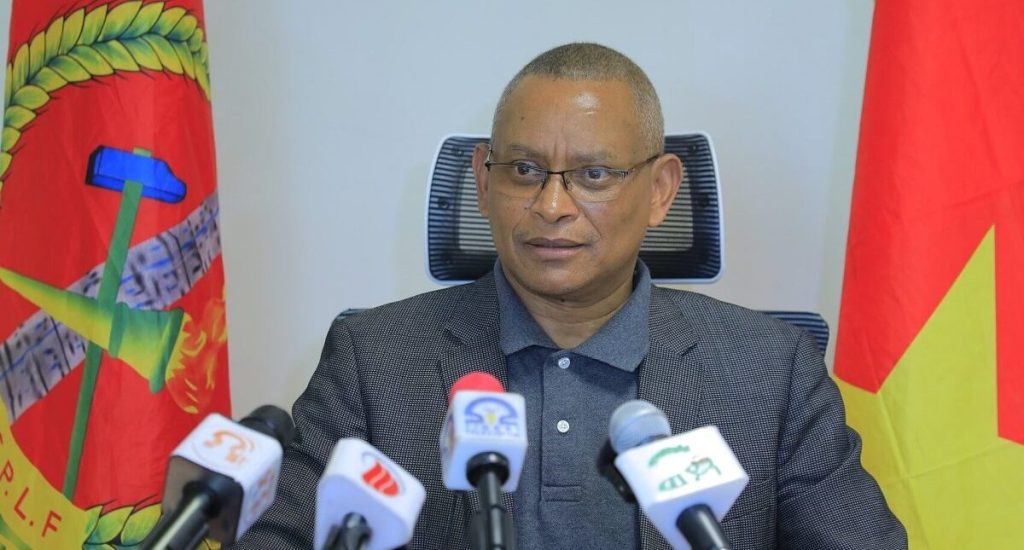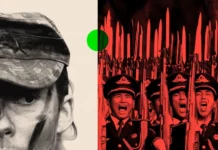Source: AS
Addis Abeba – The Tigray People’s Liberation Front (TPLF) has written to United Nations Secretary-General Antonio Guterres, rejecting allegations made by Ethiopia’s Ministry of Foreign Affairs and calling for renewed international engagement to ensure the full implementation of the Pretoria peace deal.
In the letter addressed to UN Secretary-General António Guterrez dated 8 October 2025, the TPLF said it was compelled to respond to what it described as “inaccurate and politically motivated allegations” contained in a 2 October letter from Ethiopia’s Ministry of Foreign Affairs. The party accused the federal government of attempting to “divert attention from its continued and serious violations” of the Permanent Cessation of Hostilities Agreement (CoHA), signed in Pretoria in November 2022.
“It is deeply regrettable that, instead of focusing on the genuine implementation of the Pretoria Agreement, the Federal Government appears intent on diverting the attention of the international community through fabricated stories and smear campaigns against the TPLF,” the letter stated.
In a letter dated 2 October 2025, addressed to UN Secretary-General António Guterre, Ethiopia’s Ministry of Foreign Affairs has accused the Eritrean government and the Tigray People’s Liberation Front (TPLF) of colluding to “wage war” against Ethiopia, alleging that the two are working together under a new alliance named “Tsimdo.” The ministry also alleges the two were involved in a recent offensive by the Fano militia aimed at capturing Woldiya.
The TPLF dismissed as “entirely unfounded” the government’s accusation that it was preparing for war in coordination with Eritrea and other armed groups. The letter said emerging people-to-people interactions between communities in Tigray and Eritrea “should have been recognized as a positive and constructive step toward peacebuilding and regional reconciliation, rather than misrepresented as a conspiracy for renewed conflict.”
According to the letter from the Ministry of Foreign Affairs, the Eritrean government and the TPLF (Tigray People’s Liberation Front) were allegedly involved in a recent offensive by the Fano militia aimed at capturing Woldiya, a major town in the Amhara Region.
The ministry claimed that TPLF commanders and fighters directly participated in the operation, with additional skirmishes reported in Raya and Welkait.
However, the statement did not specifically address the accusation about its own involvement in the recent Fano militia attack in Woldiya, Amhara Region.
The group warned that the government appeared to be “building a case for yet another war in the region,” which it said undermines the peace process and risks reigniting instability. Despite what it called “serious challenges,” the TPLF reaffirmed its commitment to peaceful dialogue as the only sustainable path forward, “recognizing that peace cannot be sustained through coercion or exclusion, but only through mutual trust, justice, and political understanding.”
The letter called on the African Union and international partners to urgently convene a review meeting to address the stalled implementation of the CoHA. It appealed to the UN Secretary-General to support efforts aimed at restoring confidence between the parties and ensuring the agreement’s comprehensive enforcement.
The TPLF also urged the strengthening of the Joint Monitoring, Verification, and Compliance Mechanism (JMVCM) to ensure independence and access; the withdrawal of all non-Ethiopian National Defense Force (ENDF) units from Tigray; the safe and dignified return of internally displaced persons (IDPs); and accountability for grave human rights violations.
“The letter issued by the Ethiopian Ministry of Foreign Affairs represents a dangerous inversion of reality—an attempt to portray the aggressor as the victim and the victims as the aggressor,” the TPLF wrote, adding that the people and leadership of Tigray had “demonstrated extraordinary patience and commitment to peace under extremely difficult conditions.”
While the TPLF said it has honored its commitments under the Pretoria Agreement—verified by AU and international observers—it argued that key provisions remain unfulfilled, particularly those concerning the protection of civilians, the withdrawal of non-ENDF forces, and the safe return of IDPs.
“Hundreds of thousands of displaced families continue to live in dire conditions, deprived of shelter, food, and health services,” the letter stated. It accused non-ENDF forces and settlers, “often supported by ENDF units,” of occupying private and communal lands belonging to Tigrayan civilians—actions it said amount to an attempt to “alter Tigray’s demographic and geographic status.”
Recently, the Bureau of Communication Affairs of the Tigray Interim Administration has accused Ethiopia’s Ministry of Agriculture of “deliberately misrepresenting” Tigray’s constitutionally recognized boundaries, describing the act as “a covert political game” aimed at altering regional demarcations.
The TPLF also criticized federal ministries for promoting narratives that claim Western Tigray as part of the Amhara Region, describing this as a “blatant violation” of Articles 1 and 4(2) of the CoHA, which require respect for Ethiopia’s constitutional framework and the withdrawal of non-ENDF forces from Tigray.
In May, the National Election Board of Ethiopia (NEBE) officially revoked the legal status of the TPLF, citing the party’s failure to implement “corrective measures” ordered by the Board. The decision followed the expiration of a three-month deadline issued to the TPLF in February 2025.
Furthermore, the group said the National Election Board of Ethiopia’s refusal to reinstate its legal status has undermined the peace process and the inclusivity envisioned in the Agreement, calling the move “politically motivated.”
The letter concluded by expressing concern over what it described as “growing militarization in and around Tigray,” including the “training and arming of new militias—such as the so-called Tekeze Guards and certain disgruntled Tigrayan youth in Afar and other areas.” The TPLF said these actions violate the CoHA and risk reigniting conflict, warning that “such measures threaten to undo the fragile peace that the Pretoria Agreement was designed to secure.”
AS







